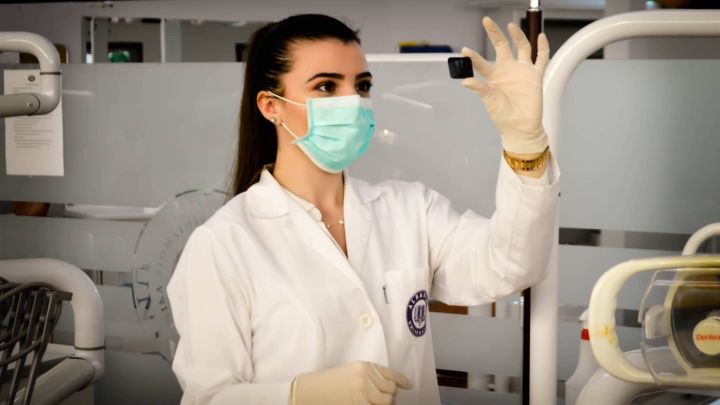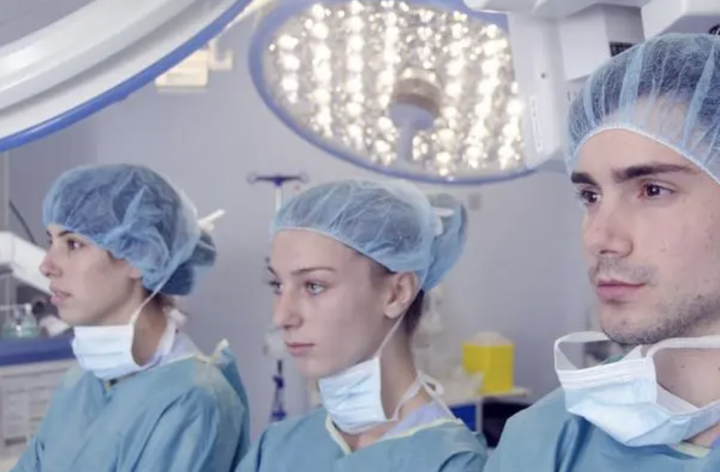Medical
Speaking of medical history should focus on the key points
Communication between doctors and patients is an art, and communication between patients and doctors also requires skills. This is not only a need for interpersonal communication, but also a need for the vital interests of patients.

Communication between doctors and patients is an art, and communication between patients and doctors also requires skills. This is not only a need for interpersonal communication, but also a need for the vital interests of patients.
In today's hospitals, with the emergence of various advanced examination instruments, it is "good news" for patients and it seems easy for doctors to see doctors. In fact, it is not true. There are hundreds of laboratory tests, and it is obviously unrealistic for every patient from head to toe. Not to mention that the expensive medical expenses are unbearable, the pain and delay caused by the tedious examination are unacceptable to patients. Therefore, the collection of medical history is still essential. Before diagnosis, doctors can better communicate with patients by asking for medical history and physical examination. They are better at capturing "clues" from patients' statements and selecting necessary examinations to make a correct diagnosis. So where does the medical history come from? Of course, from the mouth of the patient. It can be seen that it is important for patients to express their medical history.

The human body is like a machine with precise design. Where there is a problem, the machine will "alarm", which makes people uncomfortable. For example, if you eat unclean food, you will have diarrhea. If you get cold, you will cough and sneeze. Therefore, the most direct discomfort of patients is often the "crux". How to express your feelings clearly and let the doctor know that this also needs to be considered.
In the outpatient service, some patients talk to the doctor and talk to the family manager, and some even return to the doctor's question after a long circle. The doctor was in a fog. It was rude to interrupt the patient. Some patients would be unhappy. If they did not interrupt, they would waste time and have no clue. Some patients answer the doctor's questions in a vague way. How should patients express themselves when they go to see a doctor so that the doctor can understand your condition in more detail and solve your pain in a limited time?
First of all, we should "come to the point" and fully trust doctors. When a patient goes to see a doctor, he or she should tell the doctor about his or her most direct discomfort, such as where he or she feels painful or itchy. In this way, the doctor can focus on your condition and put forward further questions to make the communication more directional. There are some situations that you think have nothing to do with the disease, and the diagnosis may be more difficult after the doctor's analysis.
Secondly, the patient should tell the doctor the duration and regularity of his discomfort. Doctors can draw conclusions by analyzing what they have learned. For example, regular mid upper abdominal postprandial pain is of great significance for the diagnosis of gastric ulcer, and such regular changes often indicate the possibility of malignant change of ulcer. These all require the patient to provide a medical history.
In addition, patients should also tell doctors about their basic diseases. This can give doctors a reference, whether it is related to this disease, and can avoid "detours". For example, for the first time patient with "hematemesis", if there is a history of bronchiectasis, "hematemesis" tends to come from the airway; if there is a history of ulcer in the upper digestive tract, "hematemesis" is more considered to come from the digestive tract, and their treatment measures are different. Diagnosis as soon as possible is crucial for treatment, and the medical history is particularly important at this time.
It can be seen that the patient is not passively at the disposal of the doctor, but needs to cooperate with the doctor to collect the medical history. However, the more you talk, the better. Try to focus on the doctor's questions as much as possible. Some questions should be avoided in medical treatment, such as: "Doctor, what is the cause of my disease?" "Can my illness be cured?" "How long will it take to cure it?" "How much will it cost?" Even dozens of times. In fact, on the one hand, in terms of the current medical level, many diseases have not yet found a clear cause; Moreover, if doctors feel it is necessary to tell patients, they will naturally tell them in detail: Third, it is often difficult to give a satisfactory explanation for the above problems in the first visit. Such communication will not help doctors diagnose diseases, but will also delay time, and even cause misunderstanding, affecting the communication atmosphere between doctors and patients.
Of course, patients should not think that "a long illness makes a doctor". Diseases will develop and change, and they are not responsible for their own decisions; It is forbidden to "seek medical advice in case of emergency". It is good to read this doctor in the newspaper today, but it is bad to listen to the radio tomorrow to say that the doctor is brilliant and seeks medical advice everywhere. The doctor should have a process to get the condition. Since seeing the doctor, you should have full trust and continuity, so that even if the doctor can not give a satisfactory conclusion, he can also give you better advice and direction.
-
![]()
![]() MedicalJul 26, 2025
MedicalJul 26, 2025MIT | Use artificial intelligence to improve early breast cancer diagnosis
-
![]()
![]() MedicalJul 25, 2025
MedicalJul 25, 2025New Treatment For Uroepithelial Carcinoma Receives Fda Fast Track Designation With Encouraging Initial Results
-
![]()
![]() MedicalJul 24, 2025
MedicalJul 24, 2025Integrative Oncology: Acupuncture And Acupressure May Relieve Surgical Pain And Anxiety In Cancer Patients
-
![]()
![]() MedicalJul 23, 2025
MedicalJul 23, 2025New Targeted Radiotherapy For "Laser-Like" Precision Treatment Of Refractory Prostate Cancer With Fewer Side Effects!
-
![]()
![]() MedicalJul 22, 2025
MedicalJul 22, 2025Why Is Astrazeneca Willing To Spend a Whopping $12.1 Billion?




